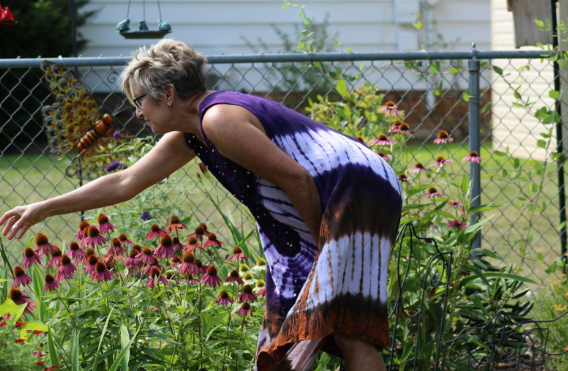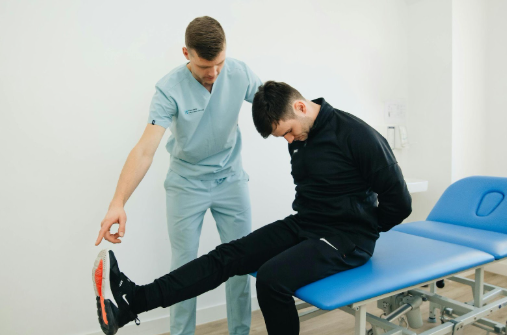Understanding Postherpetic Neuralgia (PHN): What You Need to Know

Postherpetic neuralgia (PHN), or "post-shingles pain," is a chronic condition that can occur after a shingles infection. While most people recover fully from shingles within a few weeks, some experience lingering pain that can significantly impact their lives.
Read on to demystify PHN and find answers to all your key questions about this condition.
What Are Shingles?
Shingles, also known as herpes zoster, is a viral reactivation of the varicella-zoster virus (VZV), the same virus that causes chickenpox. After recovering from chickenpox, the virus lies dormant in nerve cells near the spinal cord and brain. Under certain circumstances, it can reactivate, leading to shingles.
What Is Postherpetic Neuralgia (PHN)?
PHN is a complication of shingles that causes persistent pain in the areas previously affected by the shingles rash. This pain typically arises after the rash has healed and can last for months or even years.
Symptoms of PHN
The main symptom of PHN is pain in the area of the previous shingles rash. The pain may be present all the time or come in sharp bursts that come and go. Sometimes, slight stimulation, such as clothes brushing against the skin, can trigger pain.
This pain can be described in various ways, including:
- Burning sensation
- Shooting or stabbing pain
- Tingling or numbness
- Itching
- Increased sensitivity to touch, even light touch
These symptoms can significantly impact daily activities, causing difficulty sleeping, dressing, and engaging in physical activities.
Who Is at Risk for PHN?
Anyone who has had shingles can develop PHN, but certain factors increase the risk:
- Age: Individuals over 50 years are at a higher risk, particularly those over 70.
- Severity of Shingles: The severity of the initial shingles outbreak can influence the likelihood of developing PHN.
- Weakened Immune System: People with weakened immune systems due to conditions like HIV/AIDS or those who are undergoing specific medical treatments are more susceptible.
Diagnosing PHN
There is no specific test for PHN. Diagnosis typically relies on the following:
- Medical History: This includes confirming a past shingles diagnosis and understanding the present pain characteristics.
- Physical Examination: The doctor will examine the affected area and assess for any specific triggers that worsen the pain.
Treating PHN
Several treatment options can help manage the pain and improve quality of life:
- Medications:
- Anticonvulsants: These medications, originally developed for epilepsy, can help manage nerve pain.
- Antidepressants: Some antidepressants can be helpful for certain types of nerve pain.
- Opioids: These are powerful pain medications but should be used with caution due to the risk of addiction.
- Topical treatments: Lidocaine patches or creams applied locally can provide pain relief.
- Neurostimulation: Techniques like spinal cord stimulation or transcutaneous electrical nerve stimulation (TENS) use electrical currents to modulate pain signals.
- Physical therapy: Exercises and physical therapy can help improve mobility and manage pain.
Preventing PHN
The most effective way to prevent PHN is to prevent shingles itself. This can be achieved through:
- Vaccination: The Shingrix vaccine is recommended for adults 50 years of age and older to reduce the risk of shingles and PHN.
- Maintaining a Healthy Lifestyle: A healthy lifestyle, including a balanced diet, regular exercise, and managing stress, can contribute to a strong immune system and potentially lower the risk of both shingles and PHN.
Living with PHN
Living with PHN can be challenging, but adopting certain strategies can help manage the condition and improve well-being. These include:
- Managing Stress and Lifestyle: Stress can worsen pain, so relaxation techniques like meditation or yoga can be beneficial. Also, regular exercise, a balanced diet, and adequate sleep can improve overall well-being and pain management.
- Joining a Support Group: Connecting with others who understand the challenges of PHN can provide emotional support and valuable information.
Final Words
PHN is a chronic pain condition that can significantly impact the quality of life. However, with proper diagnosis, treatment, and lifestyle modifications, individuals can manage the pain and live fulfilling lives. If you suspect you have PHN, consult a healthcare professional for an accurate diagnosis and personalized treatment plan. Remember, early intervention is crucial for optimizing pain management and improving your quality of life.
Are you ready to take control of your pain and reclaim your life? Contact
Arkansas Spine and Pain today, where compassionate care meets cutting-edge solutions. Our team is dedicated to providing personalized pain management strategies tailored to your needs. Don't let pain hold you back;
schedule your consultation now and embark on a journey toward a pain-free life with us.



